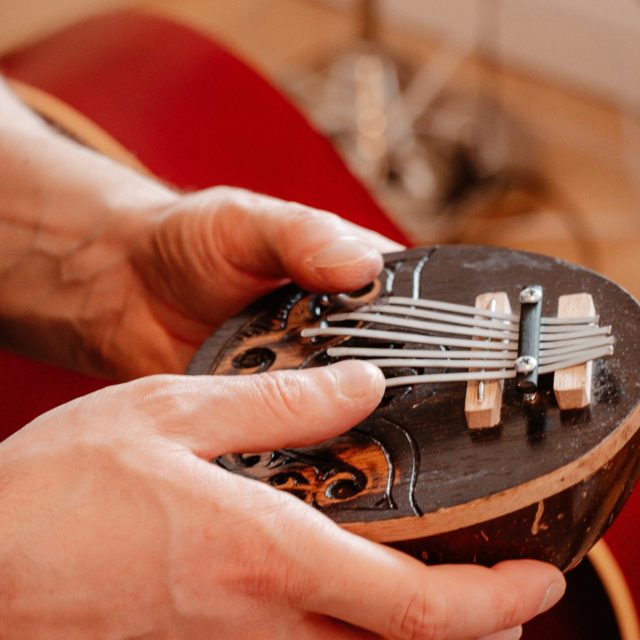Potential benefits of Music Therapy may include:
-
Developing positive relationships
-
Supporting client and caregiver relationships
-
Increasing self-expression
-
Exploring emotional responses to disability using a non-verbal modality
-
Developing increased self-awareness and a positive sense of self
-
Developing communication skills through verbal and/or non-verbal means
-
Increasing motivation and engagement
-
Drawing on and developing the person’s strengths, skills, and abilities to achieve goals
-
Increasing confidence
-
Developing and enhancing emotional literacy
-
Improving concentration and attention
-
Improving motor function: Gross and fine motor
-
Reducing stress and anxiety
-
Improving mood
-
Group work can
-
foster cohesion and social connection
-
bring about a sense of community
-
provide emotional and psychological support
-



